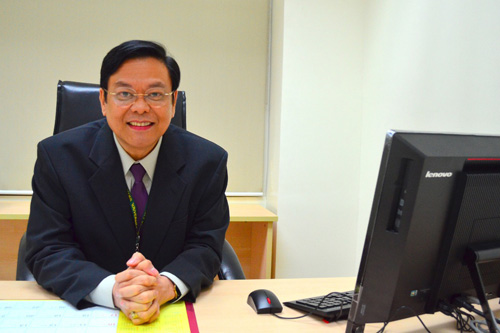Law dean explains "protected speech"
 Read more: Dean Mel Sta Maria (May 15, 2020). Protected speech. fb/melstamaria/posts/10222622087278761.
Read more: Dean Mel Sta Maria (May 15, 2020). Protected speech. fb/melstamaria/posts/10222622087278761.The government cannot mute statements, observations and comments which it does not like and allow only those which favor them. A gov't should not likewise tolerate libelous statements of their allies or fanatic followers and not tolerate criticisms of those who oppose it. Criticism or opinions against the government, public officials and their duties, even coming from an ordinary citizen, may take on different forms. They may be direct, laden with euphemism, given in a reverse-psychology-way, sarcastic , funny, subtle, archly, ironical, and/or provocative but if such remarks are relatable --- whether near or far, slight or strong ---- to how they work in government and how they present themselves, in written or oral manner, to the public, THEY ARE WITHIN PROTECTED SPEECH. Such declarations are within the ambit of freedom of speech, expression and the press. They cannot be the basis of criminal prosecution of any kind.
One of my favorite quotes is that, in a democracy, there must be a “profound national commitment to the principle that debate on public issues should be uninhibited, robust, and wide-open, and that it may well include vehement, caustic, and sometimes unpleasantly sharp attacks on government and public officials." (Terminiello v. Chicago, 337 U.S. 1, 4)
Also, "the people are not obliged to speak of the conduct of their officials in whispers or with bated breath in a free government, but only in a despotism." (Howarth vs. Barlow [1906], 113 App. Div., N. Y., 510 cited in US vs. Bustos 37 Phil 521)
"A public official, more especially an elected one, should not be onion skinned. Strict personal discipline is expected of an occupant of a public office because a public official is a property of the public." (Yabut et al vs. Ombudsman G.R. No 111304 June 17, 1994)
"The interest of society and the maintenance of good government demand a full discussion of public affairs. Completely liberty to comment on the conduct of public men is a scalpel in the case of free speech. The sharp incision of its probe relieves the abscesses of officialdom. Men in public life may suffer under a hostile and an unjust accusation; the wound can be assuaged with the balm of a clear conscience. A public officer must not be too thin-skinned with reference to comment upon his official acts. Only thus can the intelligence and the dignity of the individual be exalted. Of course, criticism does not authorize defamation. Nevertheless, as the individual is less than the State, so must expected criticism be born for the common good. Rising superior to any official or set of officials, to the Chief of Executive, to the Legislature, to the Judiciary — to any or all the agencies of Government — public opinion should be the constant source of liberty and democracy." (See the well considered cases of Wason vs. Walter, 4 L. R. 4 Q. B., 73; Seymour vs. Butterworth, 3F. and F., 372; The Queen vs. Sir R. Carden, 5 Q. B. D., 1 cited in US vs. Bustos 37 Phil 521)
 Read more: Dean Mel Sta Maria (May 15, 2020). Protected speech. fb/melstamaria/posts/10222622087278761.
Read more: Dean Mel Sta Maria (May 15, 2020). Protected speech. fb/melstamaria/posts/10222622087278761.



